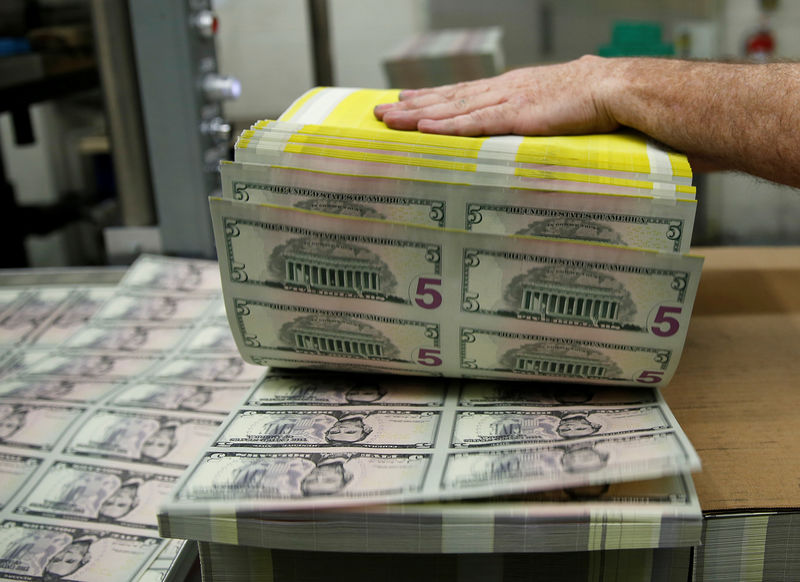Investing.com - A fresh batch of economic data from the U.S. and the Eurozone this week will give investors more insight into the economic impact of the trade spat between the U.S. and China, which ratcheted up again on Friday.
U.S data on tap includes a revised estimate of second quarter growth along with figures on durable goods orders and trade. The year-long trade war between the world's two largest economies has roiled financial markets with bond markets indicating the chances of a recession are mounting.
In the Eurozone, Monday’s Ifo survey of German business climate will be closely watched amid fears that the bloc’s largest economy is entering a recession. Meanwhile inflation data at the end of the week will likely underscore the need for fresh stimulus by the European Central Bank.
The dollar weakened on Friday after President Donald Trump ordered U.S. companies to start looking for an alternative to China as Beijing imposed more tariffs on U.S. goods. Trump cannot legally compel U.S. companies to abandon China and gave no detail on how he might proceed with any such order.
The greenback fell from a three-week high against the euro and to one-week troughs versus the Japanese yen and Swiss franc. Benchmark U.S. 10-year Treasury yields also fell sharply.
His tweet followed China’s announcement on Friday of retaliatory tariffs on about $75 billion worth of U.S. goods, putting as much as an extra 10% on top of existing rates.
“All of this adds to uncertainty in terms of geopolitics,” said Fran Rodilosso, head of fixed income portfolio management at VanEck in New York. “Obviously, the uncertainty is with regard to global growth and that has been everyone’s chief concern.”
Trump’s comments overshadowed a speech by Federal Reserve Chairman Jerome Powell, who did not announce major stimulus measures to ease a worsening global economic outlook, but set the stage for further interest rate cuts.
Powell said the U.S. economy was in a “favorable place” and the Fed would “act as appropriate” to keep the economic expansion on track.
“Fed Chairman Powell’s speech at Jackson Hole suggests that he is leaning toward a September rate cut, but he did not lay out a reaction function regarding the Fed’s rate path beyond September,” said Philip Marey, senior U.S. strategist, at Rabobank.
Trump linked his spats with China and the Fed following the speech, tweeting that the U.S. central bank is not helping with easier rate policy and asking “who is the bigger enemy” — China President Xi Jinping or Powell.
“By escalating the trade war, President Trump will get what he wants from the Fed: lower rates,” said Rabobank’s Marey.
In late trade, the euro rose 0.6% to 1.1140 after touching a three-week low of 1.1052. The U.S. dollar index that tracks the greenback against six major currencies was down 0.5% at 97.55.
The dollar fell to a one-week low against the yen and was last down 0.9% at 105.39. It earlier hit a one-week high of 106.74 yen.
Ahead of the coming week, Investing.com has compiled a list of significant events likely to affect the markets.
Monday
German Ifo business climate
U.S. durable goods
U.S. Dallas Fed manufacturing
St. Louis Fed President James Bullard speaks
G7 meetings
Tuesday
U.S. S&P/Case-Shiller house price index
U.S. consumer confidence (CB)
Thursday
U.S. initial jobless claims
U.S. GDP Q2 2nd estimate
U.S. pending home sales
Friday
Eurozone CPI flash estimate
U.S. personal income/spending
U.S. Chicago purchasing managers’ index
U.S. consumer sentiment (UoM)
--Reuters contributed to this report
